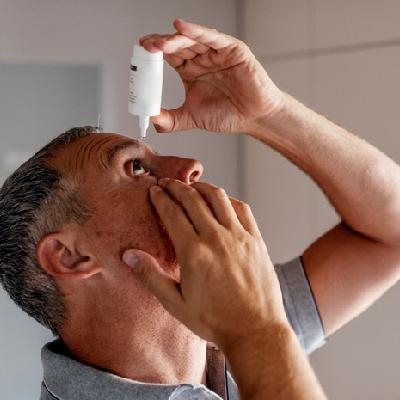Glaucoma is a group of eye diseases that can cause vision loss and blindness by damaging the nerve in the back of your eye called the optic nerve.
The most common treatment for glaucoma is prescription eye drops. They work by lowering the pressure in your eye and preventing damage to your optic nerve. These eye drops won’t cure glaucoma or reverse vision loss, but they can keep glaucoma from getting worse.
If your doctor prescribes eye drops for glaucoma, you’ll need to use them every day. Depending on the type of medicine, you may need to use them once, twice, or up to 4 times a day.

Stick with it
Some people with glaucoma stop using their eye drops after a while. They may forget, get out of the habit, or think the medicine isn’t helping.
But remember, glaucoma eye drops won’t make you feel different or improve your vision. They prevent your vision from getting worse. If you don’t use them as prescribed, you could lose your vision.
What types of eye drops can help glaucoma?
There are many medicines available to treat glaucoma. Before you start taking glaucoma medicines, tell your doctor about other medicines, supplements, or vitamins you take. Eye drops for glaucoma may affect how those other medicines work.
Some types of eye drops work by helping fluid drain from your eye, which lowers eye pressure. Examples include:
- Prostaglandins, like Xalatan (latanoprost), Travatan Z (travoprost), Zioptan (tafluprost), and Lumigan (bimatoprost)
- Rho kinase inhibitor, like Rhopressa (netarsudil)
- Nitric oxides, like Vyzulta (latanoprostene bunod)
- Miotic or cholinergic agents, like Isopto Carpine (pilocarpine)
Other types of eye drops work by lowering the amount of fluid your eye makes. Examples include:
- Alpha-adrenergic agonists, like Iopidine (apraclonidine) and Alphagan P or Qoliana (brimonidine)
- Beta blockers, like Betoptic (betaxolol) and Betimol, Istalol, or Timoptic (timolol)
- Carbonic anhydrase inhibitors, like Trusopt (dorzolamide) and Azopt (brinzolamide)
What are the side effects?
Most people don’t have problems with glaucoma medicines. But there’s a small chance that you could develop:
- Stinging, itching, burning, and redness in your eye
- Blurry vision
- Changes in your eye color or the skin around your eye
- Headaches
- Dry mouth
- Changes in your energy level, heartbeat, or breathing
The specific side effects depend on which medicine you’re taking. If you notice any side effects, talk to your doctor. You may be able to take a different dose (amount) or a different medicine.
How long will I need to use glaucoma eye drops?
As long as the medicine is working, your doctor will probably want you to keep using it every day.
If eye drops don’t lower the pressure in your eye enough, your doctor may recommend prescription pills as well — but this is uncommon.
Your doctor may also suggest other treatment options, like laser treatment or surgery.